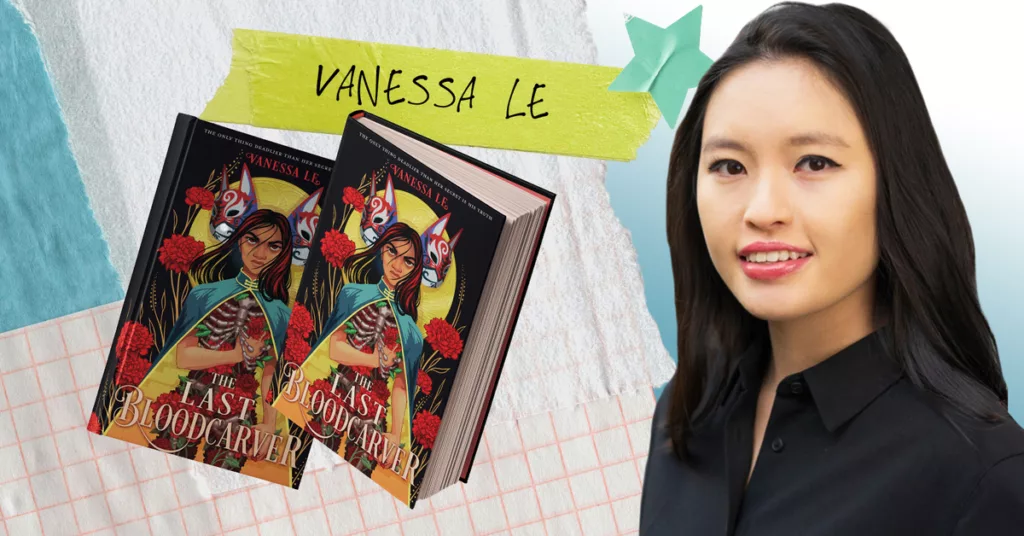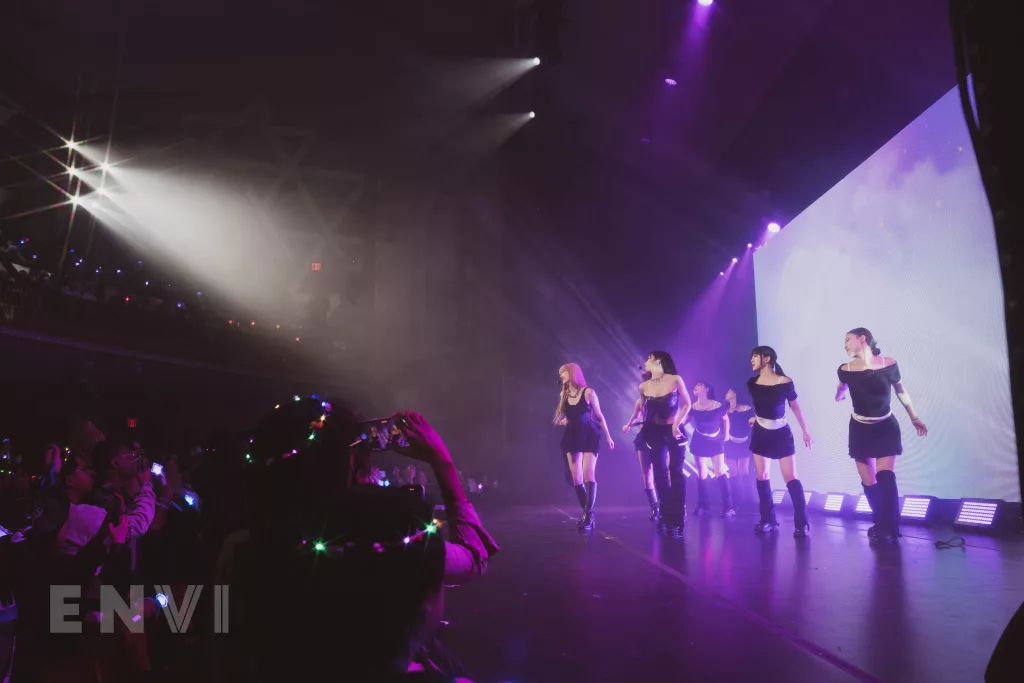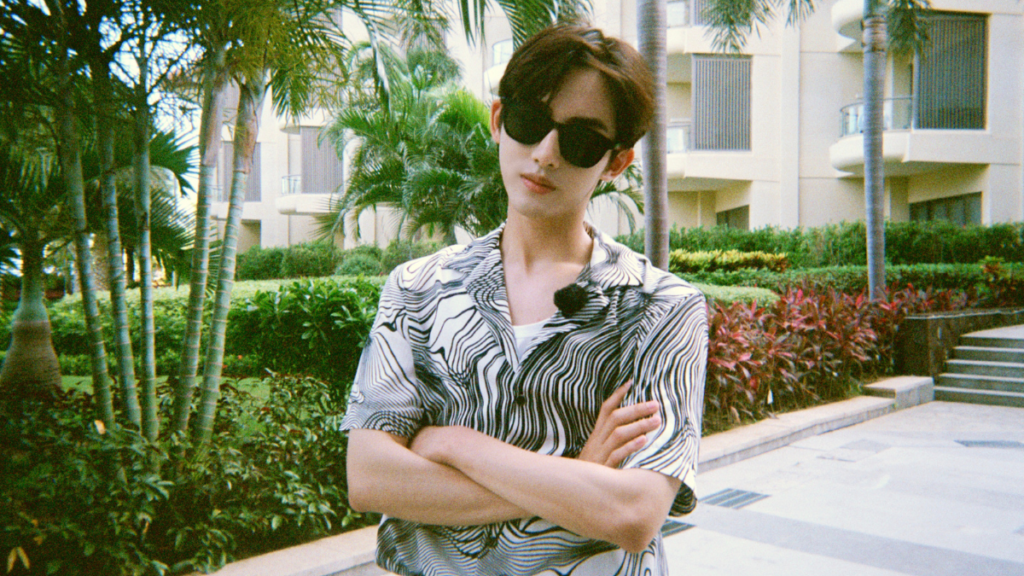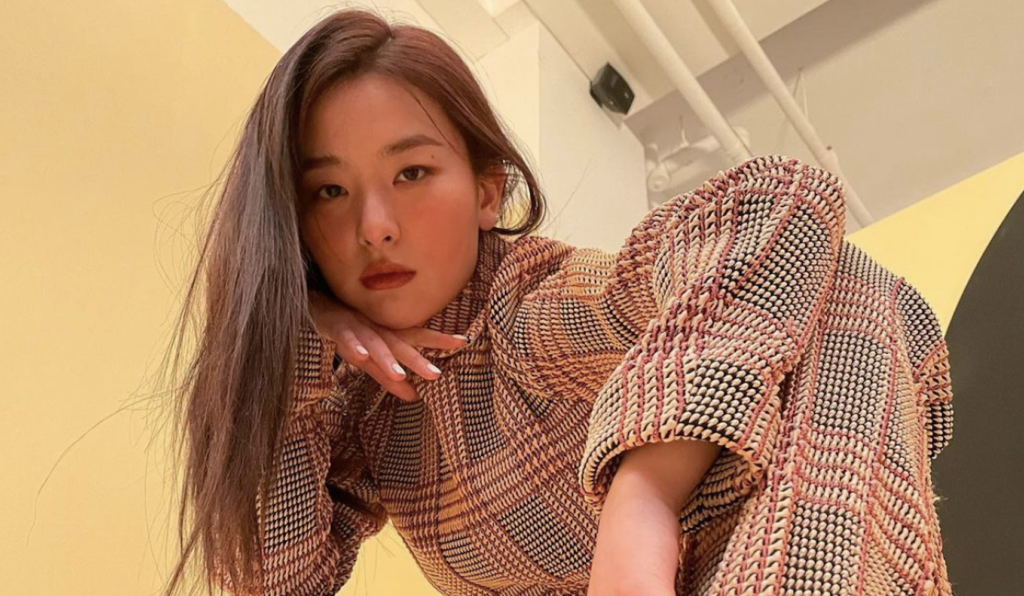Creative Spotlight: Vanessa Le On Her Science Fantasy Debut The Last Bloodcarver

Before The Last Bloodcarver became the anticipated debut it is today, it was a document titled “BloodcarverWIP.”
“I started a new project […] with no plans for it at the time. It was self-indulgent, fun, and something I normally didn’t write,” Vanessa Le wrote in her How I Got My Agent blog post, recounting the inception of her novel in July 2021.
This project would become one of the most anticipated young adult novels of 2024. The Last Bloodcarver follows Nhika, who is one of the few that can alter human biology with a simple touch. When she is captured and sold to an aristocratic family, she is tasked with healing the last witness of a murder. Le’s debut received starred reviews from Kirkus, Publisher’s Weekly, Booklist, and School Library Journal, with critics praising Le for her “exquisitely rendered prose, intertwining a murder investigation with themes of unresolved grief, medical ethics, and lost heritage.”
EnVi had the chance to speak with Vanessa Le about her publishing journey thus far, the intersection between writing and medicine, and what it means to write from your heart.
Choosing Your Passion
Le felt drawn to writing before she could even remember.
Across Asian cultures, there are different variations of what is known as a choosing ceremony. This is called thôi nôi in Vietnamese and happens when a child celebrates their first birthday. Parents will display a variety of objects on a tray, and whichever the child chooses will determine their career and passion.
Le chose a pen.
“My mom always tells this story,” she said with a wistful smile. “It’s startlingly accurate. I guess since I was born, I was destined to be a writer.”
Her first brush with the publishing world was in middle school, when she tried querying a portal fantasy novel. “I probably repressed that memory because it was so bad,” she laughed. “I guess I did know about the [publishing] process. […] But it’s definitely different 10 years ago than it is now.”
In college, Le joined writing workshops and fiction classes. She recalled it being the time when she started thinking about craft and the process of bringing a novel idea into fruition. She credits her knowledge about publishing to the friends she made online. “It wasn’t until I graduated and joined BookTwitter […] that I really understood what it meant to publish,” she said. “Most of what I know about the process is just learning from friends and making a lot of mistakes along the way.”
The Intersection Between Two Passions
Le is currently in her first year of medical school and has found a balance between her two passions: writing and medicine. “It really helps that I love both, […] so it never feels like a chore to either be writing or to be studying medicine,” she said.
When she wrote The Last Bloodcarver, she pulled from her background in health and human biology. From the very first chapter, readers can see how well medicine is interwoven into the story, giving the magic system a life of its own.
“[Science fantasy] is a niche I want to write in more,” Le told EnVi. “It’s been really helpful combining two things that I love.”
When asked if she has experienced any struggles balancing her two passions, she said, “There’s more pros than cons. When I’m in class, inspiration is everywhere. Like I’ll sit in a class and learn about a disease and think, that’s a plot point in some book. Or on exams, I’ll see a question and I’ll be like, I wrote about this disease.”
Writing Closer to Home
The Vietnamese culture woven throughout The Last Bloodcarver is based on Le’s very specific experience with the culture. “It’s the kind [of experience] where you don’t really speak the language, can’t read or write it, but you have all these tangential experiences with the culture and it’s so tied to your family because that’s the only point of contact you had with your culture.”
She recalled the moment when a university professor had changed the way she approached writing. He’d told her that her writing was more full of life when she wrote closer to home. So The Last Bloodcarver was born from writing about themes and characters who were very close to Le’s heart — and her care really shines through in her story.
A scene that survived the editorial process was also a moment that Le had gone through herself: a moment of rediscovering the “nuances of culture that [one’s] forgotten about.” She tried to emulate the feeling of being seen and realizing that someone else has gone through the same experiences you have. “I’m really glad [the scene] survived the editorial process,” she said. “I think the [process] made it even stronger.”
Le finds that she processes a lot of life through fiction. The Last Bloodcarver was written during the pandemic when anti-Asian racism escalated. She also was going through different struggles at the time and grappling with illness in the family. “And I gave all those struggles to one character, and that was Nhika,” she said with a laugh. “I was discovering how to deal with [everything] through her character arc. […] I was discovering a lot of myself through her.”
For a story so personal, Le tries not to think about the reception of the book. Instead, she said, “In terms of putting something that’s really raw and a part of myself out there for a lot of people and getting critiques on that, of course that’s gonna be difficult. That being said, if at least one person sees themselves in Nhika […], then that’s okay with me.”
“[Everyone] is entitled to loving or hating the book, but at least I put it out there,” she said with a smile. “At least someone might find something to enjoy about the book, and that’s all I can really ask for.”
Looking Towards the Future
When asked where she sees herself ten years from now, it’s not about choosing one career path over the other for Le. Instead, she hopes to pursue both a medical and writing career. “When I first started publishing, I wanted my bibliography to be a reflection of my own life. So I can point to a book and remember exactly what I was going through at that time. So in that regard, I hope I do keep writing, chronicling my own life through fiction.”
The end goal is to strike the perfect balance between both passions, and Le has proven time and time again that she is more than capable of doing so.
The Last Bloodcarver comes out today and is available at your local bookstores! Follow Vanessa Le on Instagram and X for the latest updates on her books.
Interested in reading more of our author spotlights? Check out our interview with Ann Liang here!



